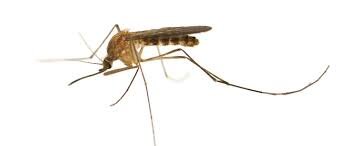
San Juan Basin Public Health
The Colorado Department of Public Health and Environment (CDPHE) has identified Colorado’s first case of West Nile virus of the 2023 season in La Plata County.
San Juan Basin Public Health (SJBPH) urges residents and visitors to take precautions to protect themselves and their families.
West Nile virus is carried by mosquitoes and can be passed on to humans through bites from an infected mosquito. Those age 60 and older and those with certain medical conditions are at greater risk for serious illness.
Four out of five people infected with mosquito-borne viruses do not get sick or only have mild symptoms. For those who have symptoms, the time between the mosquito bite and the onset of symptoms can be from two to 14 days. In rare cases, the virus can cause a serious brain infection such as meningitis or encephalitis. These infections begin suddenly with high fever and headache and may progress to stiff neck, disorientation, tremors and coma. People with certain medical conditions, such as cancer, diabetes, hypertension, kidney disease and people who have received organ transplants are at greater risk of severe illness. Severe infections can result in permanent brain damage or death.
There is no treatment for the virus other than supportive care, and there is no vaccine to prevent it.
If you think you or a family member has West Nile virus, consult a health care provider.
To protect yourself:
• Use insect repellents when you go outdoors. Repellents containing DEET, picaridin, IR3535, oil of lemon eucalyptus, para-menthane-diol, or 2-undecanone products provide the best protection. For more information about insect repellents, visit https://www.epa.gov/insect-repellents. Always follow label instructions.
• Limit outdoor activities at dusk and dawn when mosquitoes are most active.
• Wear loose-fitting, long-sleeved shirts and pants in areas where mosquitoes are active. Spray clothes with insect repellent for extra protection.
To mosquito-proof your home:
• Empty water from tires, cans, flowerpots, clogged gutters, rain barrels, birdbaths, toys and puddles at least once every week.
• Install or repair screens on windows and doors.
To learn more about the symptoms, treatments and other information about West Nile virus, visit https://sjbpublichealth.org/183/Communicable-Disease. Information is available from the CDPHE or Centers for Disease Control and Prevention.